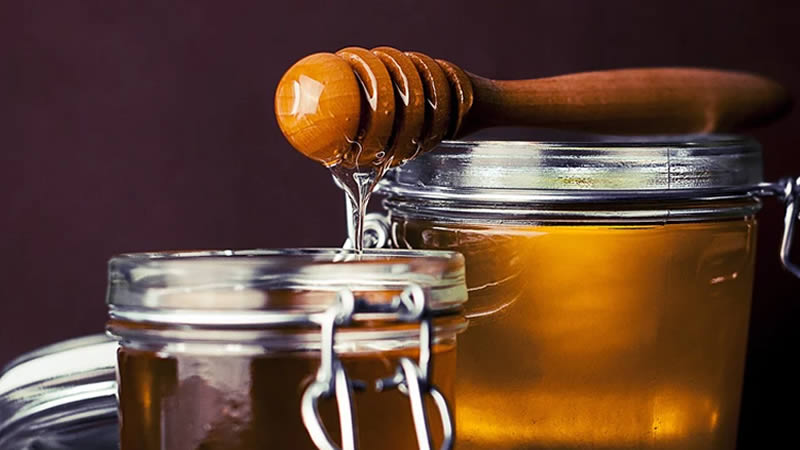
Honey better for Coughs and Sore Throats than Conventional Medicine
Share0Honey is better at treating sore throats, blocked noses, coughs, and congestion than conventional medicines, including antibiotics, according to a new study.
Honey has been used in traditional cures for thousands of years and has been shown to have antimicrobial properties.
It can also help in wound healing because its high viscosity helps to provide a protective barrier to prevent infection.
And it’s cheap, readily available and has virtually no side effects.
However its effectiveness in treating upper respiratory tract infections (URTIs) has not been scientifically assessed until now.
Scientists from the University of Oxford looked at research databases for relevant studies comparing honey, and preparations using honey as an ingredient, with standard medical care – mostly antihistamines, expectorants, cough suppressants, and painkillers.
They found 14 suitable clinical trials, involving 1,761 participants of varying ages.
Data analysis of these studies indicated that honey was more effective than usual care for improving symptoms, especially the frequency and severity of coughing.
Two of the studies showed symptoms lasted one to two days less among those treated with honey.
Writing in the journal BMJ Evidence Based Medicine, the report’s authors said: “Upper respiratory tract infections are the most frequent reason for antibiotic prescription.
“Since the majority of URTIs are viral, antibiotic prescription is both ineffective and inappropriate.”
The researchers suggest honey might therefore provide an alternative when doctors want to prescribe something to safely treat upper respiratory tract symptoms.
They concluded: “Honey is a frequently used lay remedy that is well known to patients. It is also cheap, easy to access, and has limited harms.
“When clinicians wish to prescribe for URTI, we would recommend honey as an alternative to antibiotics.
“Honey is more effective and less harmful than usual care alternatives and avoids causing harm through antimicrobial resistance.”
The research team did however sound a note of caution, pointing out the not all honey is created equal and that it is a complex substance and not a uniform product.
They also noted that only two of the studies involved a placebo, saying more of these studies need to be done before definitive conclusions can be reached.
